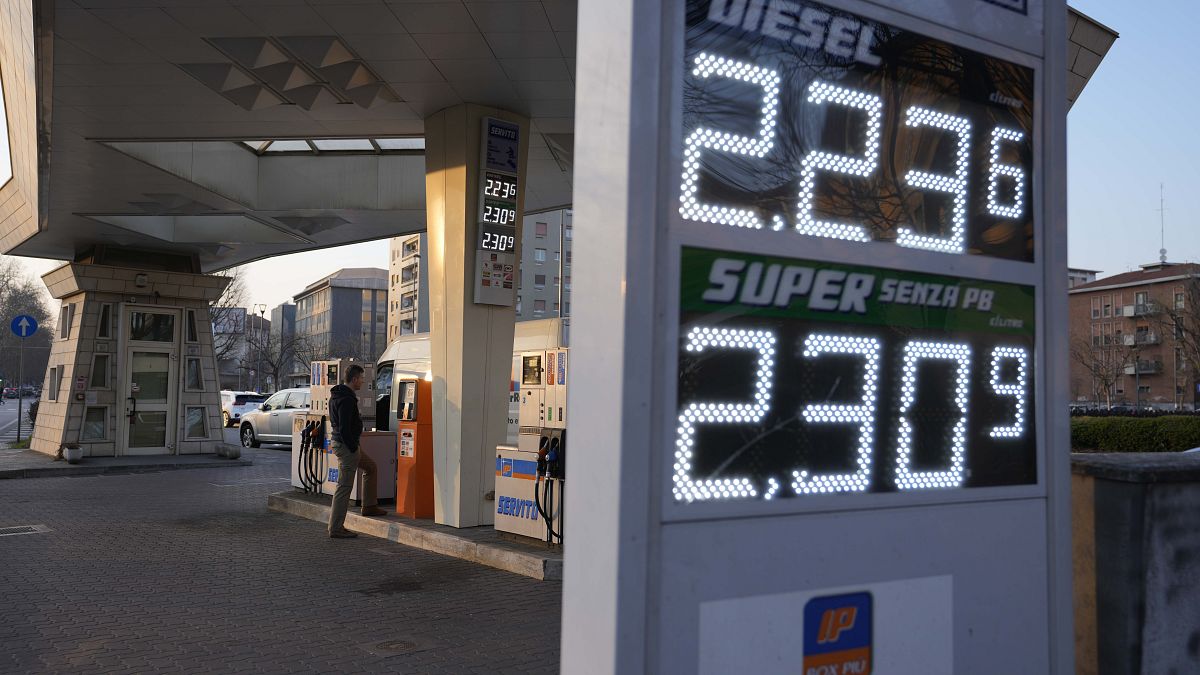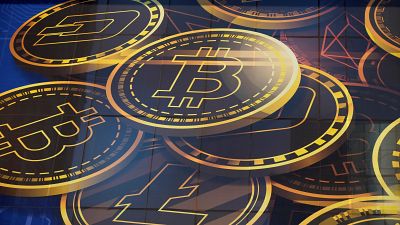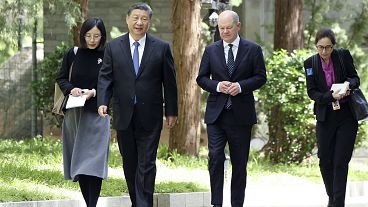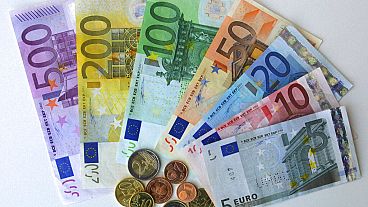The Ukraine war and the disruption of energy and food markets continue to increase inflationary pressures.
Inflation across the European Union will remain extraordinarily high for the remainder of the year, keeping households and companies under long-term financial strain.
The latest economic forecast released by the European Commission offers a pessimistic outlook of the times that lie ahead: prices in the eurozone will climb an average of 7.6% in 2022, while the whole EU will see a stronger surge of 8.3%.
Inflation will recede in 2023 but still remain worryingly high: 4% in the eurozone and 4.6% in the bloc. The figure doubles the desired 2% target set by the European Central Bank (ECB).
A total of nine EU member states -- Estonia, Latvia, Lithuania, Slovakia, Bulgaria, the Czech Republic, Hungary, Poland and Romania -- are predicted to end this year under double-digit inflation records, with the Baltic countries being the worst hit.
At the same time, the European Commission has revised downward its growth estimates: the eurozone is now estimated to expand at a 2.6% pace in 2022 and a timid 1.4% in 2023.
The EU will see similarly modest gains: 2.7% in 2022 and 1.5% in 2023.
The update almost halves the 4% growth rate for 2022 that was forecast back in the winter, before Russia launched the full scale invasion of Ukraine and rattled the global economy.
Germany, the bloc's industrial powerhouse, will expand by just 1.4% this year, while France will experience a 2.4% evolution. Italy will grow at 2.9% in 2022 but will fall to 0.9% in 2023, the lowest figure in the eurozone.
The Commission recognises that many of the negative risks that were looming over the bloc have now "materialised," citing the war's ripple effects on the energy and food markets. In parallel, record-breaking inflation is eroding the purchasing power of citizens.
"We’re already in, so to say, troubled waters," Paolo Gentiloni, European Commissioner for the economy, told Euronews after the presentation of the report.
"The 24th of February was a game changer, not only for geopolitics, for peace, for victims, for the suffering in Ukraine, but it was a game changer also for our economy."
'Paying a high price'
Gas continues to be the driving force fuelling the upward trend: at the Dutch Title Transfer Facility, Europe's leading benchmark, prices have risen from €71 megawatt per hour in early February to €180 in mid-July.
The ECB has already announced a hike in interest rates of 25 percentage points for the month of July, with another rise expected in September, most likely of a larger scale.
The bank intends to make money more expensive to slow consumer demand and therefore trigger a gradual fall in prices, but the strategy often entails a contraction in economic activity.
In its latest report, the Commission also blames China's stringent zero-COVID policy as a reason behind the ongoing disruption in supply chains and international markets.
The new forecast comes mere days after Nord Stream 1, the massive gas pipeline connecting Russia and Germany, began a planned 10-day maintenance, an operation that many fear the Kremlin will exploit to indefinitely cut off gas flows in retaliation for Western sanctions.
A total interruption of gas will almost certainly plunge the EU into a deep, painful recession.
"This is a possible adverse scenario, but it is not yet the situation we are in," Gentiloni said, noting he wanted to avoid the narrative of "catastrophe."
"The situation we are in is troubled but not yet stormy. And maybe we are able to navigate the troubled waters [while] avoiding the storm."
The Commissioner said the overall economic situation remains uncertain and heavily dependent on the evolution of the war. Growth in the second half of the year is expected to be "subdued," despite a promising summer tourism that would benefit Southern countries, he explained.
Investors have already priced in Europe's growing economic woes: this week, the euro reached parity with the dollar for the first time in 20 years.
Gentiloni dismissed as "propaganda" speculation that EU sanctions against Russia should be blamed for the grimmer economic outlook and the euro's loss of value.
"Europe is not paying a high price for the sanctions. Europe is paying a high price for the Russian invasion. How do you respond to the Russian invasion?" he said.
"You can respond militarily. It would have been a mad decision, creating a risk of escalation. Or you can respond economically. And the economic response was impressively united."
"We showed unity, and of course, this is creating huge difficulties for the Russian economy," Gentiloni added. "I think that overall it is helping Ukraine to resist. And the Ukrainian resistance is in our common interests."



